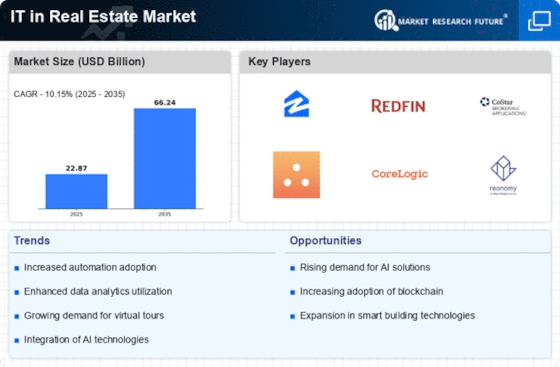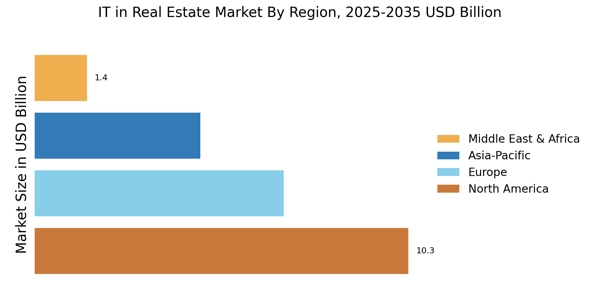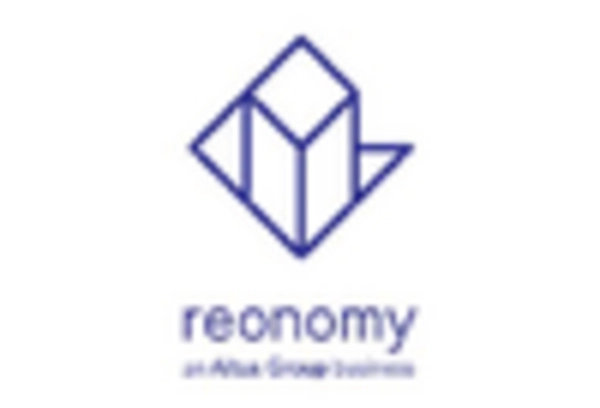Enhanced Cybersecurity Measures
As the IT in Real Estate Market becomes increasingly digitized, the need for robust cybersecurity measures is paramount. With the rise in data breaches and cyber threats, real estate companies are prioritizing the protection of sensitive client information. Recent statistics indicate that 60% of small to medium-sized businesses in real estate have experienced a cyber attack. Consequently, firms are investing in advanced cybersecurity solutions, including encryption and multi-factor authentication, to safeguard their operations. This trend not only protects assets but also builds trust with clients, which is essential for success in the IT in Real Estate Market.
Growth of Cloud Computing Solutions
The adoption of cloud computing solutions is reshaping the IT in Real Estate Market. By leveraging cloud technology, real estate firms can enhance collaboration, streamline operations, and improve data accessibility. Recent reports suggest that the cloud services market in real estate is expected to grow at a compound annual growth rate of 22% through 2025. This growth is attributed to the increasing need for scalable solutions that can accommodate fluctuating demands. As firms migrate to the cloud, they can reduce operational costs and improve efficiency, positioning themselves favorably within the competitive landscape of the IT in Real Estate Market.
Integration of Artificial Intelligence
Artificial intelligence (AI) is becoming a pivotal driver in the IT in Real Estate Market. AI technologies are being utilized for predictive analytics, customer service automation, and property management optimization. Recent findings indicate that AI applications in real estate could save the industry approximately USD 1.4 trillion by 2030. This potential for cost savings and efficiency gains is prompting firms to invest in AI-driven tools that enhance decision-making and improve client interactions. As AI continues to evolve, its integration into real estate operations is likely to redefine industry standards and practices.
Rise of Virtual Reality and Augmented Reality
The emergence of virtual reality (VR) and augmented reality (AR) technologies is transforming the IT in Real Estate Market. These technologies enable potential buyers to experience properties remotely, enhancing the decision-making process. According to recent data, the VR and AR market in real estate is projected to reach USD 2.6 billion by 2025. This growth is driven by the increasing demand for immersive property tours and the ability to visualize renovations or changes in real-time. As a result, real estate firms are investing in these technologies to provide clients with innovative experiences, thereby gaining a competitive edge in the IT in Real Estate Market.
Sustainability and Green Building Technologies
The increasing emphasis on sustainability is significantly influencing the IT in Real Estate Market. As environmental concerns grow, real estate companies are adopting green building technologies and sustainable practices. Data shows that properties with sustainable features can command a 10% premium in rental prices. This trend is prompting firms to invest in IT solutions that facilitate energy management, waste reduction, and sustainable design. By aligning with sustainability goals, real estate companies not only enhance their marketability but also contribute to a more sustainable future, thereby solidifying their position in the IT in Real Estate Market.


















